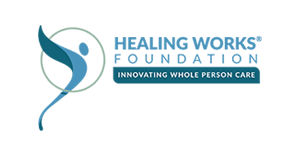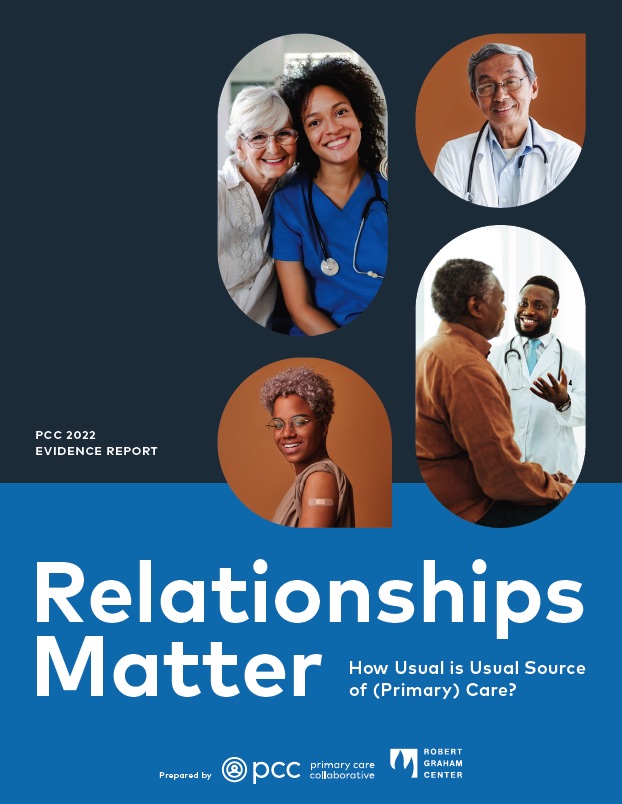You are looking at an archived version of our site. Please visit thepcc.org for a fresh, new experience!
Delivering Results: Whole-Person Primary Care in Action
On September 9, 2024, the Primary Care Collaborative (PCC) hosted a discussion with health leaders to learn about the business case for taking a whole-person health approach to primary care—one that is comprehensive and addresses aspects such as lifestyle change.
On September 9, 2024, the Primary Care Collaborative (PCC) hosted a discussion with health leaders to learn about the business case for taking a whole-person health approach to primary care—one that is comprehensive and addresses aspects such as lifestyle change.
The webinar was part of PCC’s multi-year initiative to reimagine primary care that treats the whole person inclusive of their physical, behavioral, spiritual, and social wellbeing—sponsored to Ardmore Institute of Health and HealingWorks Foundation.
This included showcasing examples where this model delivers an ROI, including for a county-wide public school system based in Indiana, for employees of a safety net hospital in Queens, NYC, and other examples across the country.
MediSys Health Network’s Dr. Alan Roth, Vital Incite’s Mary Delaney, and Midland Quality Alliance’s Dr. Padmaja Patel spoke as PCC’s Ann Greiner moderated the conversation.
Panelists began by providing a top-level overview of how they implemented a whole health approach to primary care, the financing that supports such a model and the results they have been able to achieve for patients and the overall system.
Dr. Roth explained how his team transitioned to a proactive care model by risk-stratifying patients and implementing high-value visits. This approach led to reduced costs, improved quality of care, and better outcomes, achieving the quintuple aim by enhancing patient and physician satisfaction while lowering health care costs and utilization.
Delaney discussed her work with commercial health plans, highlighting a success story from Carmel Clay Schools in Indiana. Starting in 2012, the school system implemented a near-site clinic and used data-driven approaches to identify and address employees' health needs.
With a focus on building trust and understanding what matters to individuals, they expanded their resources, including mental health therapists, a dietitian, and a wellness coordinator. By reducing plan spending, they reinvested in these services, leading to significant health improvements, including a drop in type 2 diabetes and $6.5 million in savings in 2023.
Dr. Patel highlighted her experience with lifestyle medicine, particularly as a medical director for the Ornish heart disease reversal program at Midland Health in Texas. The program's holistic approach, addressing nutrition, exercise, stress management, and group support, has shown significant health improvements, including a 47% reduction in health care costs and long-term patient adherence.
Dr. Patel also discussed an intensive lifestyle program for Midland Health employees, which led to a $2 million reduction in hospitalizations and a $1 million savings in pharmacy spending, demonstrating lifestyle medicine’s financial and health benefits.
Greiner then asked panelists to provide additional details about their programs, particularly what elements were critical to success and challenges they continue to face.
Dr. Patel attributed the success of her programs to building strong patient support systems through clinical and community resources and ensuring access to a multidisciplinary team. By focusing on behavior change strategies, rather than simply providing information, patients were empowered to take control of their health.
However, challenges were also outlined in implementing a whole-person care approach. Delaney criticized the current fee-for-service model and highlighted the need for a better reimbursement process.
Dr. Roth also discussed risk score, echoing a conversation from other panelists. He explained that his organization’s whole-person risk score incorporates over 500 factors, including chronic diseases, care utilization, medication adherence, and appointment attendance, to assess patient health. This score helps prioritize proactive outreach to patients, especially those at higher risk or who haven't visited in a year, with navigators working to ensure they receive necessary care.
These panelists’ successes offer a promising future toward whole-person care. However, Greiner highlighted the importance of still working toward changing policy to expand and scale successful primary care models, focusing on payment reforms and workforce strategies.
Resources
- Avoiding revascularization with lifestyle changes: The Multicenter Lifestyle Demonstration Project – Dean Ornish, American Journal of Cardiology (1998)
- Carmel Clay Schools: Bringing Lifestyle Medicine to the Classroom & the Community – Roger McMichael, Elisabeth Prosser, Mary Delaney, American Journal of Health Promotion (2023)
- The Case for Delivering Whole-Person Care – Wayne Jonas (2022)
- Dean Ornish Program for Reversing Heart Disease Cost Effectiveness Summary – Dean Ornish
- Lifestyle Medicine: Prevention, Treatment, and Reversal of Disease – Michael D. Parkinson, Ron Stout, Wayne Dysinger, Medical Clinics of North America (2023)
- Successfully Integrating Lifestyle Medicine into Health Systems – Padmaja Patel, Marcy Madrid, American Journal of Lifestyle Medicine (2021)
PCC's initiative on whole-person care and lifestyle medicine is funded by:
Chairman of the MediSys Health Network Department of Family Medicine, Ambulatory Care and Community Medicine, Jamaica Hospital Medical Center and Flushing Hospital Medical Center
Alan R. Roth DO, FAAFP, FAAHPM is Chairman of the MediSys Health Network Department of Family Medicine, Ambulatory Care and Community Medicine at Jamaica Hospital Medical Center and Flushing Hospital Medical Center in Queens, NY. He is also Chief of Integrative Pain and Palliative Care and former Family Medicine Residency Director and Director of the Hospice and Palliative Medicine Fellowship Program. Alan is a practicing and academic Family Medicine and Palliative Care Physician and the recipient of numerous awards including “NY Magazine Best Doctor” as well as being featured in TIME magazine as a Guardian of Healthcare during the COVID -19 Pandemic. He is a Professor of Family Medicine at NYITCOM and Assistant Professor of Social and Family Medicine at Albert Einstein College of Medicine. read more
President & Chief Executive Officer, Primary Care Collaborative
Ann Greiner serves as President and Chief Executive Officer of the Primary Care Collaborative (PCC), where she is focused on defining and implementing an advocacy, research and education agenda that furthers comprehensive, team-based and patient-centered primary care. read more
Managing Partner, Vital Incite
Mary is the Managing Partner of Vital Incite, an Alera Group company, where she excels in guiding employers towards comprehensive health care solutions that prioritize both cost mitigation and employee wellbeing. With over two decades of experience on the provider side in the health care industry, Mary brings a wealth of knowledge and a unique perspective to her role.
At Vital Incite, Mary focuses on leveraging data-driven strategies to help employers optimize their health care investments and implement impactful programs aimed at enhancing employee health outcomes. Her expertise includes wellness solutions, onsite clinic integration, disease and utilization management, and improved management of carriers and PBMs. read more
Vice President, Midland Quality Alliance
Padmaja Patel is a board-certified internist specializing in lifestyle medicine and health care transformation strategies. She currently holds the position of President-Elect at the American College of Lifestyle Medicine (ACLM) and the Vice President role at the World Lifestyle Medicine Organization. In addition, Dr. Patel serves as Vice President of Midland Quality Alliance and the Chair of Quality Committee, an ACO-REACH located in Midland, TX and as a consultant for Texas Medical Board’s committee on Alternative Payment Models. She is also a member of the National Quality Forum's 2024 Healthcare Professional Stakeholder Advisory Council and the Endorsement and Maintenance Committee of the Partnership for Quality Measurement. Dr. Patel serves as the founding Chair of ACLM's Clinical Practice and Quality Committee. read more
What's New
August 16, 2024
- Page 0
- ››










